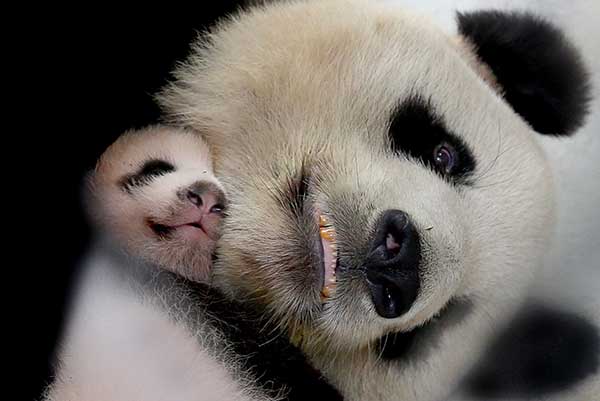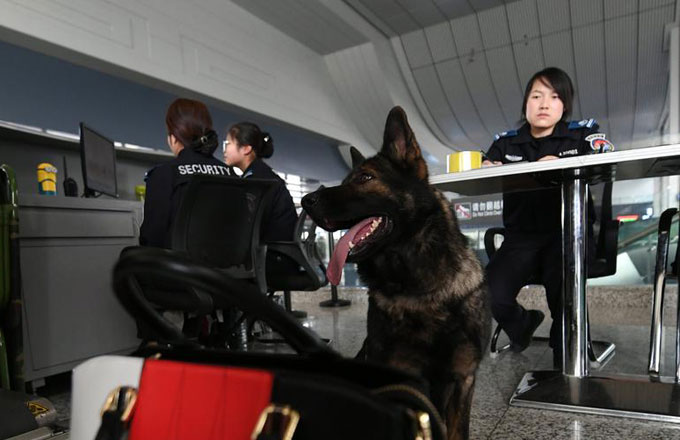Public doubts reasons for panda deaths
 |
|
Huasheng with her mother, Guoguo, at the Shanghai Wild Animal Park in September.[Photo/Xinhua] |
Shanghai Zoo accused of failing to publicize the case in a timely manner
State authorities have said that no efforts were spared in attempts to save two giant pandas whose deaths at a Shanghai zoo late last month triggered public anger.
The State Forestry Administration also said on its micro-blogging service that they have good reasons to set up panda conservation and research centers in Shanghai, Beijing and Guangzhou-places which are not traditional habitats for the animals that are deeply loved in China.
The declaration comes after a 21-year-old captive panda and one of her female cubs died of acute pancreatitis and intestinal complications respectively at the Shanghai Wild Animal Park in December.
The zoo, still breeding another five pandas, has since become the target of public anger.
In response to questions about why the endangered mammals were being kept outside of their traditional habitat of Southwest China's Sichuan province, the administration said breeding pandas in developed regions can provide a safer environment for the species and aid public education, while allowing them to take advantage of advanced research and technology in those regions.
The Shanghai Wild Animal Park first revealed the deaths of the two animals on its Sina Weibo account on Thursday.
It said that the adult panda Guoguo started to develop symptoms including fever, vomiting, diarrhea and abdominal discomfort on Dec 19. Medical experts quickly isolated her before administering a series of tests, including B-ultrasound and CT examinations. However, she died on the morning of Dec 26.
Her 6-month-old cub, Huasheng, which means "peanut" in Chinese, was quickly isolated from her ill mother. But she still developed symptoms of vomiting and abdominal discomfort as well as excreting intestinal mucus on Dec 23. On Dec 29, a CT examination discovered that the cub, which weighed about 10 kilograms, was suffering from severe twisted bowel.
The medical team immediately carried out a surgery and performed a blood infusion, but failed to rectify the situation. The cub died on Dec 31.
Min Yingguo, a manager of the zoo's animal management department, said that the sudden transfer from breast feeding to artificial formula may have been the cause of the cub's illness.
In addition, Huasheng, an energetic cub, may have injured her fragile organs when rolling about on the ground.
The wildlife park said it had immediately informed the Giant Panda Protection and Research Center of China about the condition of the two pandas. It added that two veterinarians and one breeder from the center, as well as three zookeepers and other working staff, were involved in the diagnosis and treatment of the animals.
Thousands of netizens commented on the incident, with many questioning why the zoo took so long to inform the public about the incident and declaring that they will boycott the zoo.
A weibo user called "biubiu-AU" said that the truth behind these incidents has been covered up and that the zoo is not fit to be called a breeding center for giant pandas.
Other weibo users expressed their condolences.
"It was such a grand event when these pandas came to the zoo. But now that they're gone, it has been such a hush-hush affair. I hope Huasheng and her mother will rest in peace," one netizen wrote.
Huasheng was the first panda cub born in Shanghai and her name was decided on after a campaign drawing tens of thousands of participants last year.
Pan Yixuan contributed to this story.























